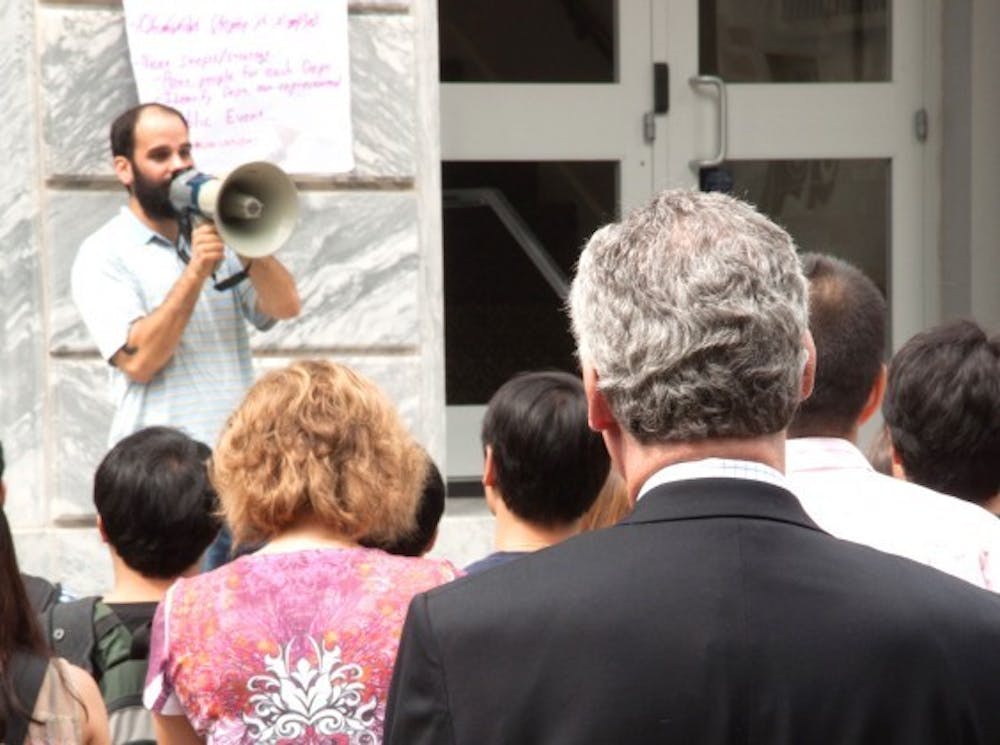Emory University last week became the nation’s first top-ranked institution to announce significant program cuts in an increasingly unstable environment of higher education. The university eliminated three academic departments, its journalism program and two graduate programs.
Robin Forman, the dean of Emory’s College of Arts & Sciences, said in a letter to the Emory community Friday that because of a lack of resources the university had decided to cut certain programs to allow for others’ expansion. Emory, a private university, recently depleted its College reserve fund to provide more financial aid to help a larger percentage of its students afford the annual cost of $41,000 in tuition and fees.
“We have too many departments and programs where resources are stretched to the limit, leaving us in danger of falling short of our goal of providing a world-class education for our students,” Forman said.
The announcement shocked the generally peaceful Atlanta campus and left many unsure of how to proceed, said Emory Journalism Prof. David Armstrong. Some have mounted protests against the dean’s actions, while others are still undecided about whether to accept the decision.
“Everybody’s trying to figure out how to move forward,” Armstrong said. “There’s a sense that if this can be reversed, do people want to be seen as publicly critical and have that come back to haunt them.”
Forman said the College’s cuts were not financially motivated in the present-term, but would allow for easier future expansion of its asset programs.
University Spokesperson Carol Wood said the University has no similar plans to make any cuts, despite increasingly difficult financial realities. University President Teresa Sullivan has several times affirmed her commitment toward preserving programs which are important to students but may not be generating resources.
“It’s a delicate balance,” Wood said.
The University Board of Visitors did, however, decide last week to cut the Masters in Bioethics, citing a lack of student interest in the program.
The repercussions of Emory’s program cuts for the student population have already begun to take effect. Journalism program chair Hank Kilbanoff said the cuts mirrored a sort of “academic horticulture,” a tactical move on Forman’s part.
“Our students who have heard [about the cuts] are coming to us full of anguish about this,” Journalism Chair Hank Kilbanoff said. “I also wish we’d have the opportunity to discuss it … that’s apparently one of the consistent themes: Why didn’t we know?”
The departments eliminated at Emory include the Division of Educational Studies, the Department of Physical Education and the Department of Visual Arts. Graduate programs in Spanish and economics are also scheduled to be cut, following the 2013-2014 academic year.
“While our financial challenges add urgency to these decisions, these are fundamentally academic decisions about the size and scope of our mission,” Forman said.
When deciding which programs to cut, Forman said the most important things to consider were “[w]hich programs have achieved distinction, what new investments are required, and which programs are truly essential for the twenty-first century of liberal arts education.”
Downsizing will eliminate the jobs of the three non-tenured assistant professors, 19 lecture-track faculty and 20 staff positions according to the Emory Wheel. Another 18 tenured faculty members will be transferred to comparable departments, Forman said.
The cuts will disproportionately affect smaller departments and non-tenured faculty, Armstrong said.







